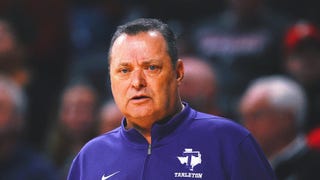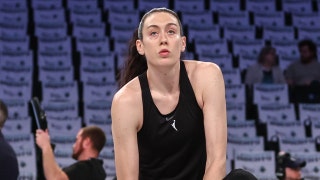In a tight, taut game that finished a scoreless tie in regulation time, Germany dominated the overtime and finally broke through the Argentinean defenses in the 113th minute for a well-deserved, 1-0 victory and their fourth World Cup title (three as West Germany).
The last time these teams faced off in the final was 1986 and 1990 championships that they split. But more recent Cup meetings—quarterfinals in 2006 and 2010—have all gone Germany’s way.
It was a tough, physical match from the beginning.
The first good chance went to Argentina in the 4th minute by Gonzalo Higuaín, but he shot it wide.
Both sides kept attacking with success on the right flank, with Thomas Müller and Leo Messi orchestrating dangerous attacks.
In the 21st minute a nearly-fatal mistake was made by Toni Kroos, who was trying to head the ball back to the German goalie, Manuel Neuer, but placed it perfectly for Higuaín, who had lagged behind the defense. It was a gift-wrapped present at the top of the area that the Argentinean striker muffed wide.
In the 30th minute Higuaín ad a goal called back for a blatant offside.
Ten minutes later, Messi got past Neuer, but neither he nor another teammate was able to push the ball into the goal before Jerome Boateng cleared the ball.
Germany controlled the ball for much of the game, 60 percent, and they closed out the half with an offensive flurry.
In the 43rd minute, a nice set of short passes delivered the ball to Kroos with a clear shot at Romero and the goal, but his attempt was uninspired and Romero fell on it.
A minute later, Müller centered the ball ahead of the Cup’s all-time leading scorer, Miroslav Klose, just a hair too far ahead of him.
But the best opportunity came a minute and a half into stoppage time, when a Benedikt Höwedes header off a corner kick slammed into the goalpost before offside was called on Müller who collected the rebound.
The second half started out more wide open, with both sides creating nice sequences. Messi had a golden chance in the 47th minute that went just wide.
The Germans kept pressing, but had a tough time getting good, clean shots off.
As the second half wore on, the attacks got weaker. A 75th minute move to his left by Messi that ended in one of his patented curving shots toward the far post, was tentative and flew out wide.
The Germans put together a few of those touch-backward attacks that dismantled the Brazilians in their semifinal match, but the Argentinean defense has mastered the art of making the opposing team look out of synch. Kroos missed a couple of shots off such plays to the right.
Germany figured to have the fresher legs as the teams headed to overtime.
Argentina last played on Wednesday; the Germans on Tuesday.
On top of that, two of Argentina’s three knockout round matches went to extra time. Only one of Germany’s did.
Barely a minute into the extra time, a frenzied exchange in front of the Argentinean goal had Schürrle and Ozit had their point-blank shots blocked.
Germany kept pressuring Argentina in the extra time—even so, Argentina kept getting excellent opportunities on the counter-attack. In the 97th minute, Rodrigo Palacio tried poke the ball over Neuer’s head, but watched in drift left.
In the 110th minute, Argentinean defender Javier Mascherano knocked heads with Bastian Schweinsteiger that left the German bleeding from under his right eye. After a minute of medical attention, Schweinsteiger returned.
In the 113th minute, Schürrle centered the ball perfectly to striker Mario Gotze, who had entered in the 88th minute. Gotze brought the ball down with his chest, and, as he was falling, drilled the ball into the far end of the goal with his left.
One of the prettiest goals you will ever see, on the biggest stage imaginable.
Argentina finally began moving forward in earnest after that, but it was too little, too late.
When, Messi sent a free kick sailing high over the crossbar in the 123rd minute, it would seal the fate of the South American team. For the 27-year-old Messi, it was likely his last, best chance to gild his reputation as one of the greatest players in the history of the game.
The Golden Boot went to Colombia's James Rodriguez, who scored six times.
Before the game, the closing ceremony featured Shakira performing “La La La (Brazil 2014)” with Brazilian artist Carlinhos Brown.
The Colombian singer was making her third World Cup appearance—one more than her boyfriend and father of her child, Spain’s Gerard Piqué.
The military cordon around Maracanã stadium was intense. The Brazilian government was intent that there would be no repetition of the Confederations Cup, a celebration that protesters managed to turn into a black eye for the country.
Inside, Russian President Vladimir Putin, Brazil’s Dilma Rousseff and Germany’s Angela Merkel were all on hand for the closing ceremony and the match.
The host for the next World Cup, in 2018, is Russia.








































